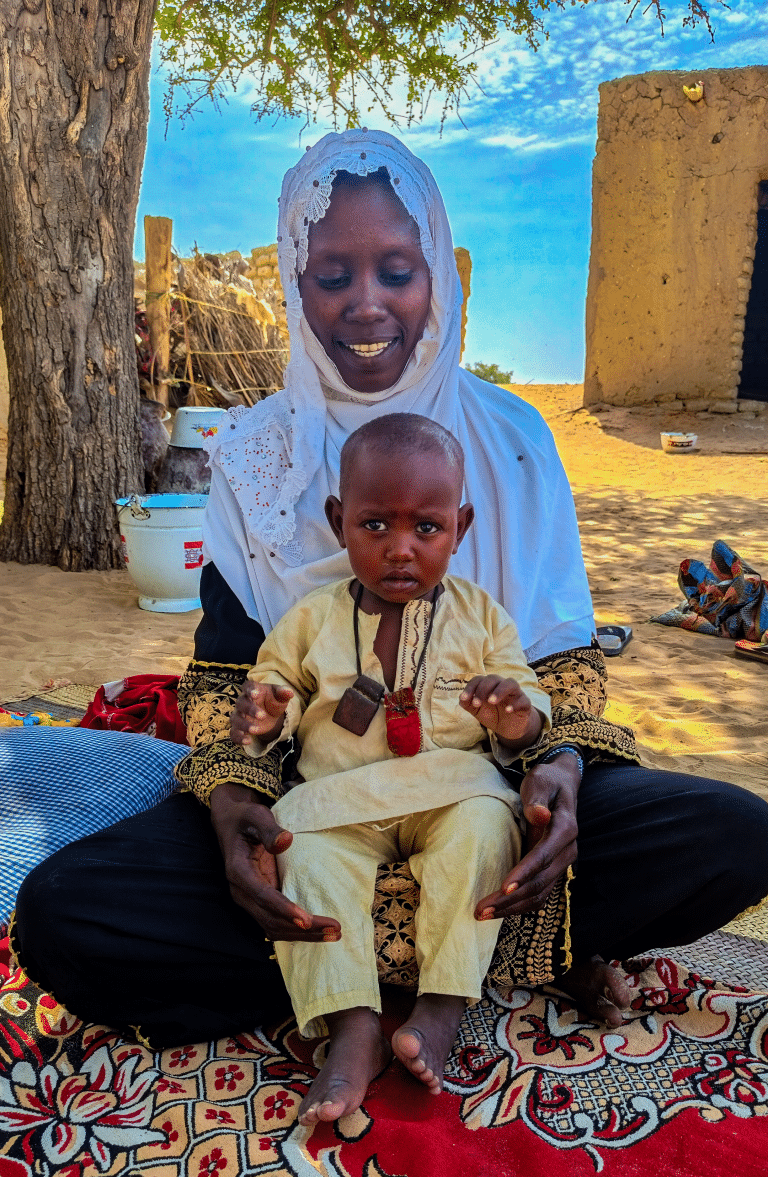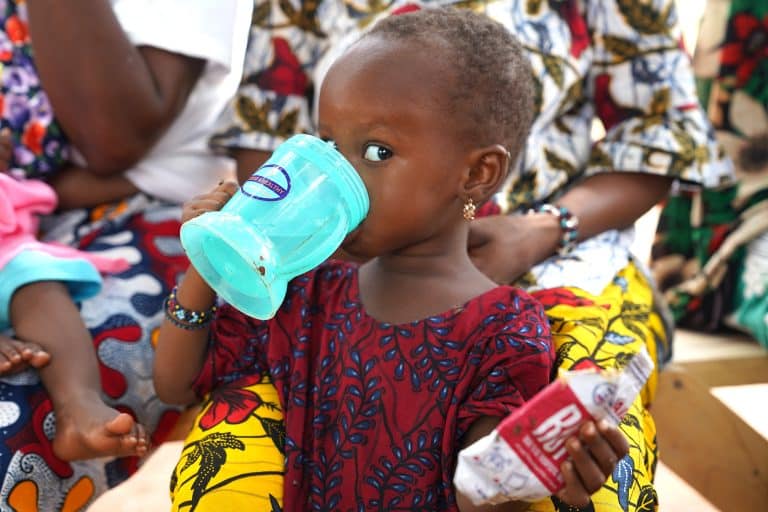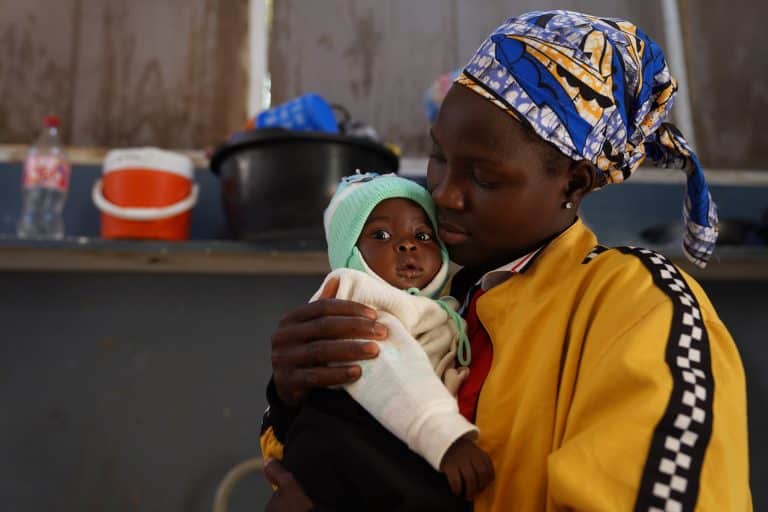Since the end of August, a new Ebola outbreak has hit the province of Kasai, in the Democratic Republic of Congo. Within a few weeks, 40 people have died, and over 1,400 contact cases have been identified, including among children and healthcare workers.
Ebola is a highly contagious and often fatal disease. In the villages of Bulape and Bambalaie, in Kasai, 69% of infected people do not survive.
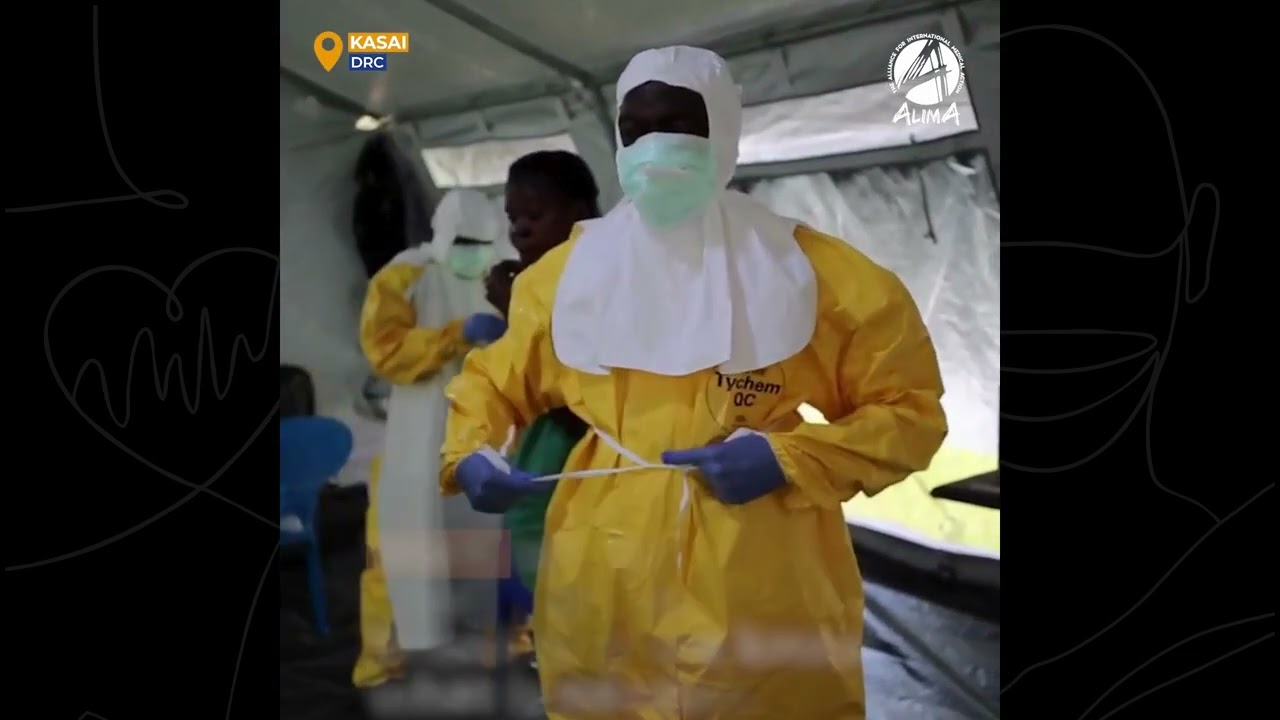
How is Ebola transmitted?
Ebola is a highly contagious acute viral infection transmitted through blood, sweat, urine, or saliva. It spreads quickly between people and through contact with infected animals. In Kasai, the thick vegetation increases the risk of exposure to bats, which are likely vectors of the virus.
Vaccination plays a key role in limiting the spread. 1,740 people have already been vaccinated, and the campaign is ongoing. For those who contract the virus, a specific treatment exists, but patients must be isolated and monitored. Early detection and treatment are vital to increase survival chances.
Acting now to save lives
As soon as the alert was raised, health authorities and humanitarian organizations joined forces.
The Ministry of Health launched a vaccination campaign targeting first healthcare workers and contact cases, to break chains of transmission and maintain families’ trust in health facilities.
ALIMA, already present in the DRC, immediately deployed an emergency humanitarian response to protect the population:
- Deployment of a medical team in Bambalaie to treat patients and monitor contact cases.
- Construction of a transit center to receive and isolate suspected cases in Bulape.
- Establishment of a 13-bed Ebola Treatment Center (ETC) in Bambalaie.
- Supply of medicines, medical equipment, and CUBEs by our logistics teams, despite the area being difficult to access.
- Installation of CUBEs to treat patients while allowing them to stay in touch with their families.
- Training of community relays to detect early symptoms in villages, direct the locals to health centers, and lead prevention actions.
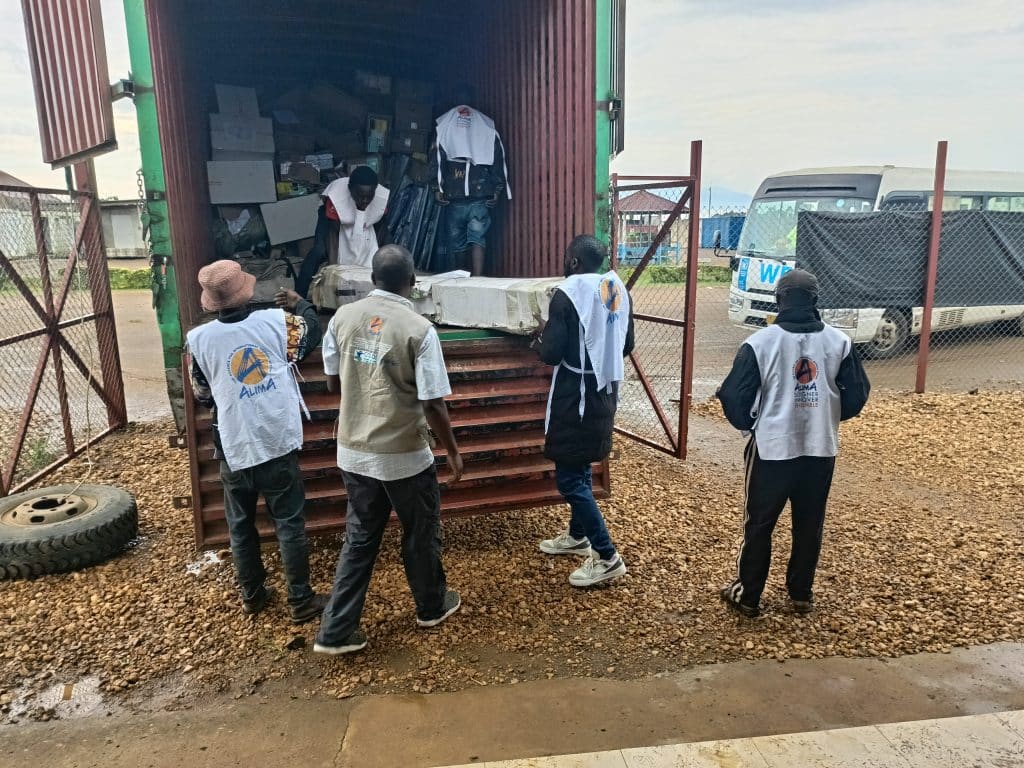
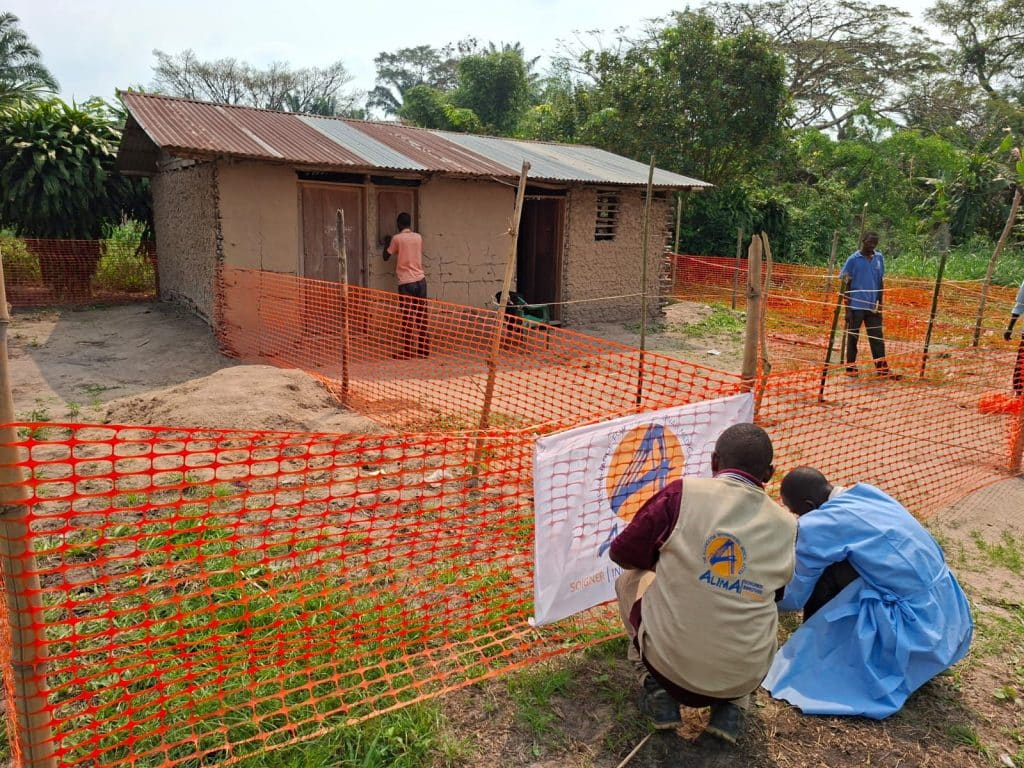
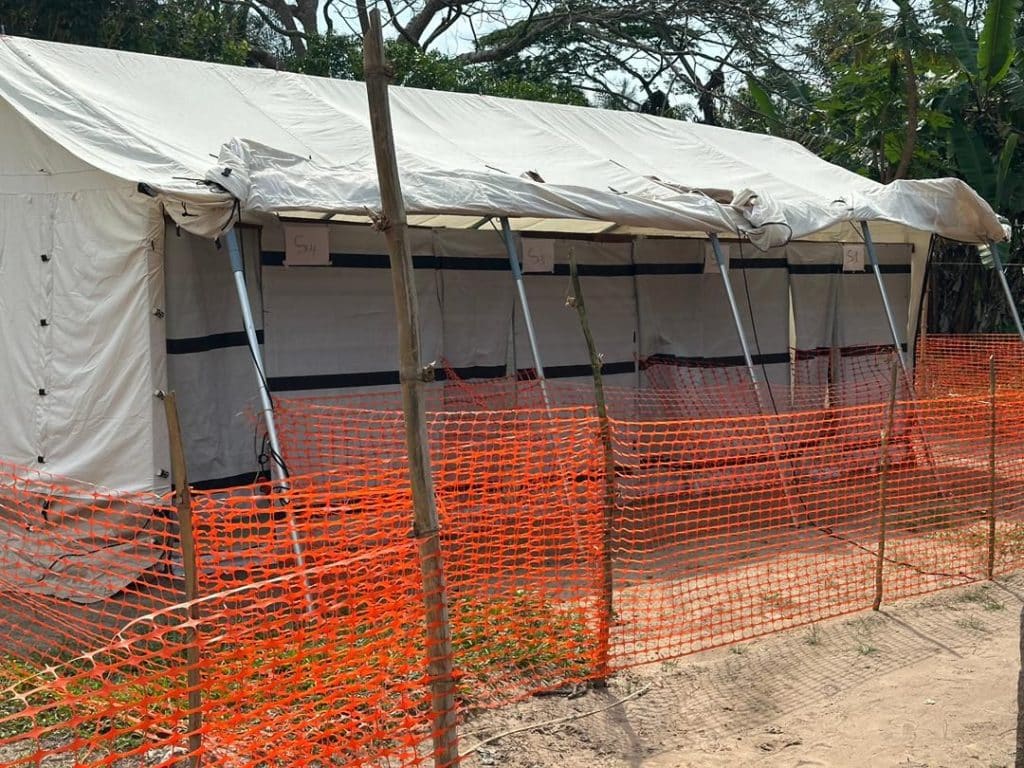
Many obstacles to overcome
The province of Kasai is an isolated area which is difficult to access. Impassable roads complicate the delivery of equipment. ALIMA’s logistics teams are adapting to this context and organizing their operations by plane and helicopter, with the support of the UN and ECHO.
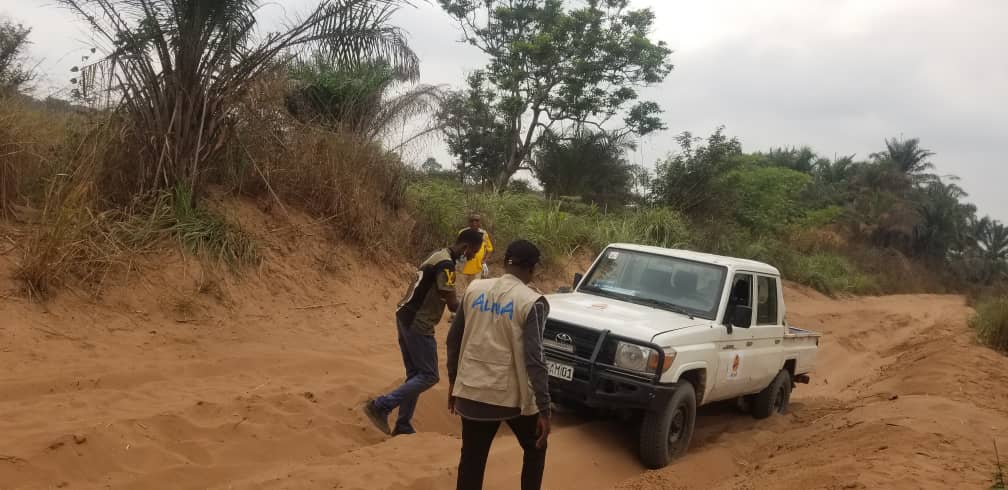
Fighting Ebola requires significant humanitarian resources:
- Strict medical monitoring: rigorous hygiene rules, rapid and controlled identification of suspected cases, contact cases, and patients.
- A lot of equipment: installation of CUBEs, provision of protective suits, masks, and treatment materials.
- A vaccination campaign and awareness raising on the practices to adopt within communities.
Proven expertise in the fight against Ebola
Over the years and through its interventions in Guinea and the DRC, ALIMA has developed recognized expertise in the fight against Ebola, particularly thanks to the CUBE (Biosecure Emergency Room for Epidemics), an innovation that makes it possible to isolate patients while allowing them to remain connected to their loved ones.
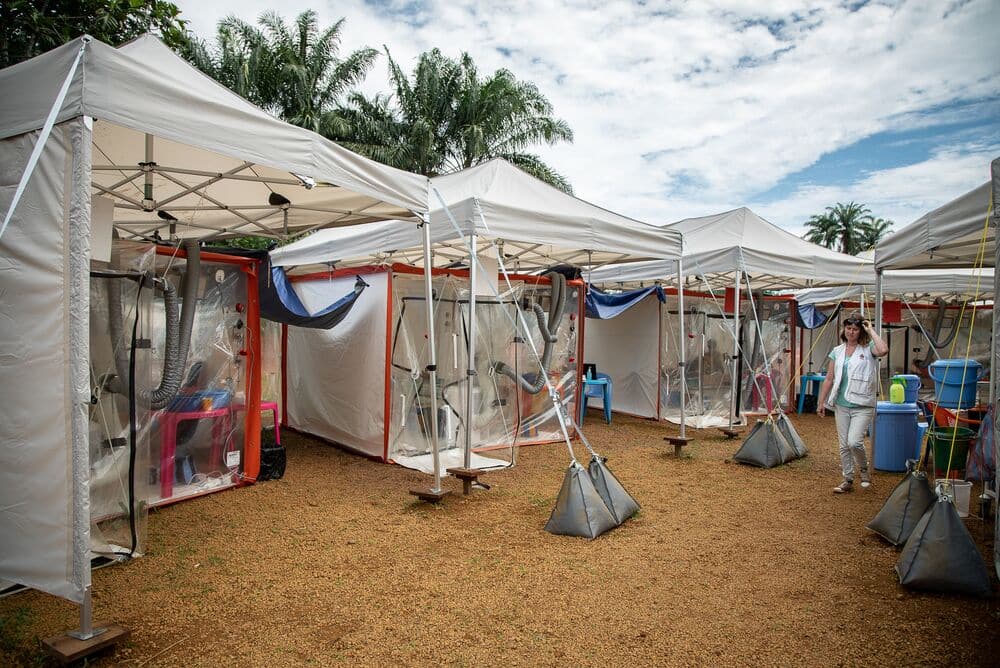
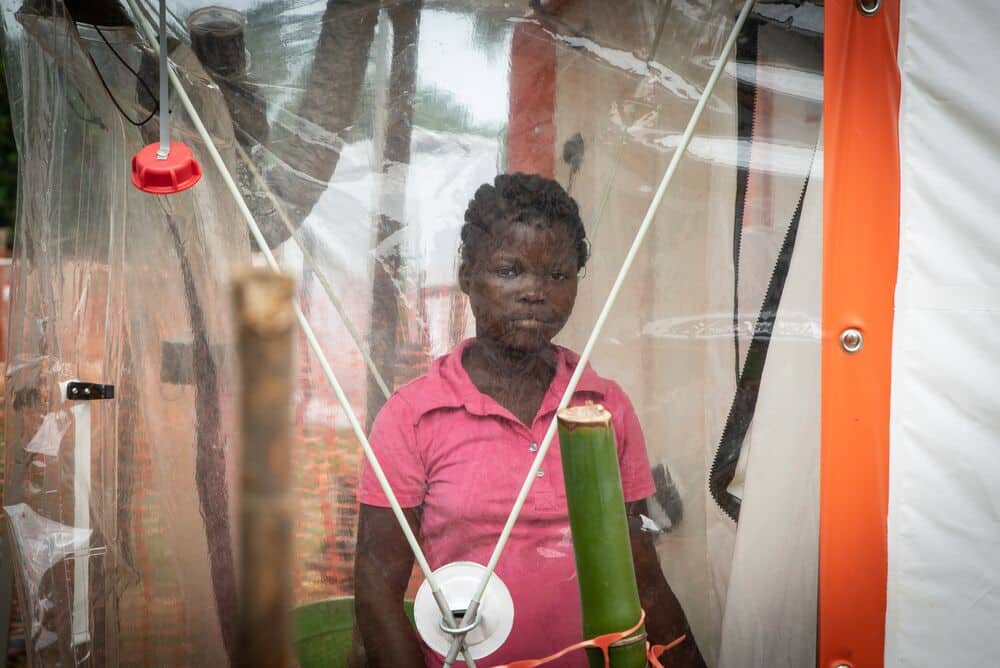
© Caroline Thirion / ALIMA
In the fight against this deadly epidemic, time is of the essence. The rapid and coordinated mobilization of ALIMA and its partners is vital for the communities of Kasai. But to scale up vaccination, equip treatment centers, and raise awareness in communities, we need you.
This emergency response is funded by ALIMA and Start Fund.
Cover photo: Alexis Huguet / ALIMA


